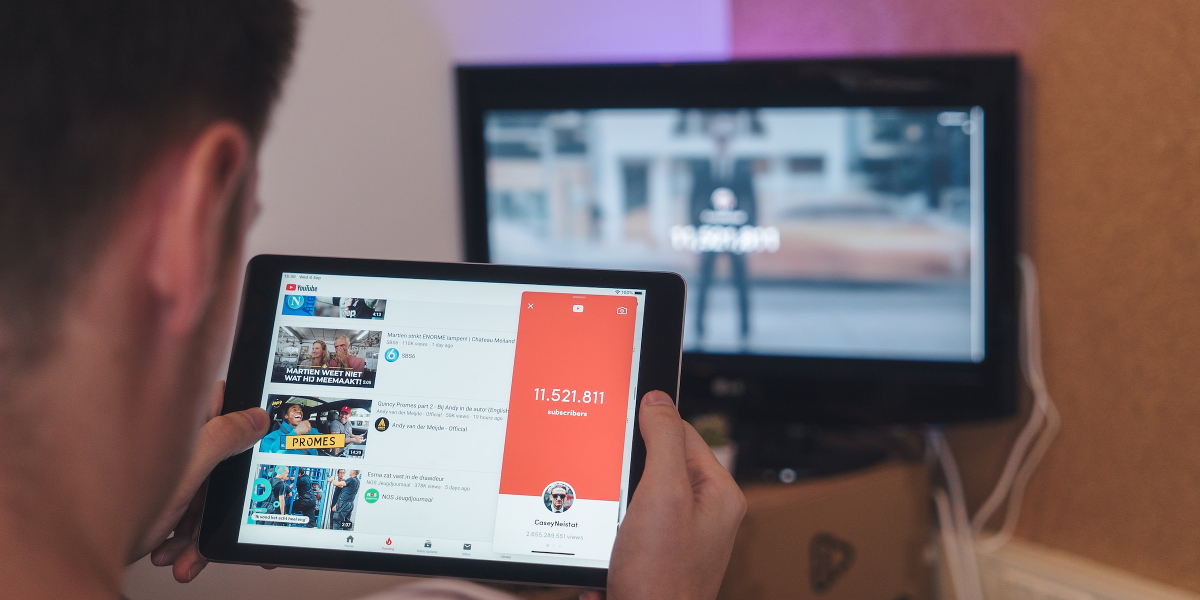 Facebook’s Watch is still finding its feet, but the more we hear about the new offering, the more it looks set to compete directly with YouTube, as well as with the Netflix, Amazon Prime and of course the wider TV industry. CNBC reported last week that Facebook is gearing up for a direct assault on YouTube and claimed the social giant has been in talks with media buyers about expanding Watch to allow more individual creators on to the platform.
Facebook’s Watch is still finding its feet, but the more we hear about the new offering, the more it looks set to compete directly with YouTube, as well as with the Netflix, Amazon Prime and of course the wider TV industry. CNBC reported last week that Facebook is gearing up for a direct assault on YouTube and claimed the social giant has been in talks with media buyers about expanding Watch to allow more individual creators on to the platform.
Facebook founder and CEO Mark Zuckerberg talked last year during an investor’s call about his vision for video on Facebook, and specifically for Watch. He said that in the long term, he believes the majority of content will be funded by ads, with creators taking a slice of the ad revenue, as opposed to Facebook paying up front to commission content.
Then in November, Facebook started to test pre-roll ads on Watch content, which represented something of an about turn considering how Zuckerberg had previously explicitly banned talk of pre-roll ads.
While Watch isn’t abandoning big-budget video, and Zuckerberg has stated that Facebook will pay upfront for some of its content, it appears that Facebook executives believe there’s an opportunity to encroach further still on YouTube’s video business.
But will competing with Facebook will require the social platform to lure creators off YouTube and on to Facebook, as CNBC suggested they are trying to do? The answer is a firm ‘maybe’.
Whilst YouTube has always had a fractious relationship with its creator community, last month the video platform sparked a backlash from many of its smaller creators after changing its criteria for monetisation. To be eligible to run ads, creators must now have more than 4,000 hours of watch time over the course of a year, and more than 1,000 subscribers.
As one affected YouTuber, Darren Rowse, tweeted:
Looks like @YouTube is not the place if you’re a smaller content creator wanting to monetize through their platform any more. Just got this email (as did many others) terminating our ‘partnership’. Lots of angry folk out there today. pic.twitter.com/fPD2y6bXV1
— Darren Rowse (@problogger) January 17, 2018
However to attract these small creators onto their platform, Facebook Watch would have to make it easier for them to monetise their content than it is on YouTube, which so far doesn’t look particularly likely. The CNBC report suggested that Facebook is considering a model where small channels won’t earn any ad revenue at all, in the belief that doing so reduce the likelihood of brand safety issues arising.
The industry insiders VAN spoke to believe Watch is more likely to be seen as addition to YouTube in most creators’ minds, rather than as an alternative.
“All online video platforms are complementary to each other, rather than replacing each other,” said Jenny Ericssons, head of partnerships at multi-platform network (MPN) United Screens. “With that said, Facebook Watch is a welcome player in the online video market for creators. We are most excited to have the opportunity to help self-developed creators to grow their monetization to the same extent that the viewing has grown on their content.”
Studio71’s managing director Sebastian Romanus agreed that Watch will struggle to beat out YouTube, though he does see potential in the platform. “It’s going to be difficult for Facebook to take a piece of the pie away from YouTube,” he said. “Facebook so far isn’t a destination you’d go to as a user to consume video content. But, having been part of the monetisation alpha testing, I think Watch could be a compelling offer, not only to our creators but to users as well.”
Both Romanus and Ericssons agree that Watch will retain significant differences from YouTube, which brings both costs and opportunities for creators.
Romanus believes that moving from YouTube to Watch won’t be completely straightforward for creators. “It’s not going to be as simple as uploading the YouTube video to Facebook, there’ll need to be more work done to have a piece of content that works for Facebook Watch. So creators will have to make a decision of whether the work they put into a Facebook video is worth it to them, but I do think we’ll see creators making content for Facebook,” he said.
However, he also sees opportunities for creators to build audiences outside of the platforms they’ve made their names on. Ericssons agrees: “With Facebook Watch we can hope for an even more diversified audience for our creators content, where we yet haven’t seen the large group of 55+ year olds move over to Youtube just yet,” she said. She also noted that Watch could play to Facebook’s comparative strengths in sharing and engaging with video, giving creators “new tools” for building audiences.
Both overall seemed very open to Watch, but are understandably cautious, and will be in no rush to put too many eggs in Facebook’s basket. YouTube, for all its problems, has a demonstrated ability to enable creators to build a following and reach large audiences, whereas Watch, still in its infancy, has yet to prove its worth.






